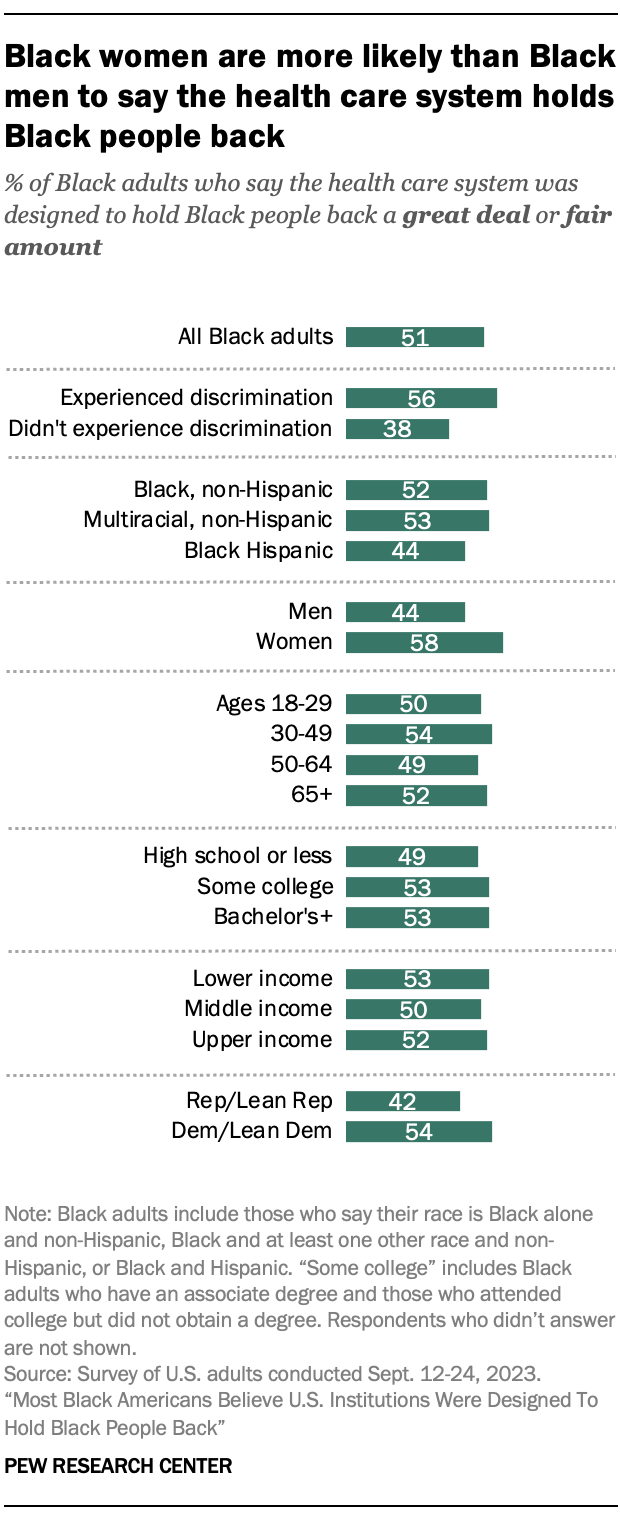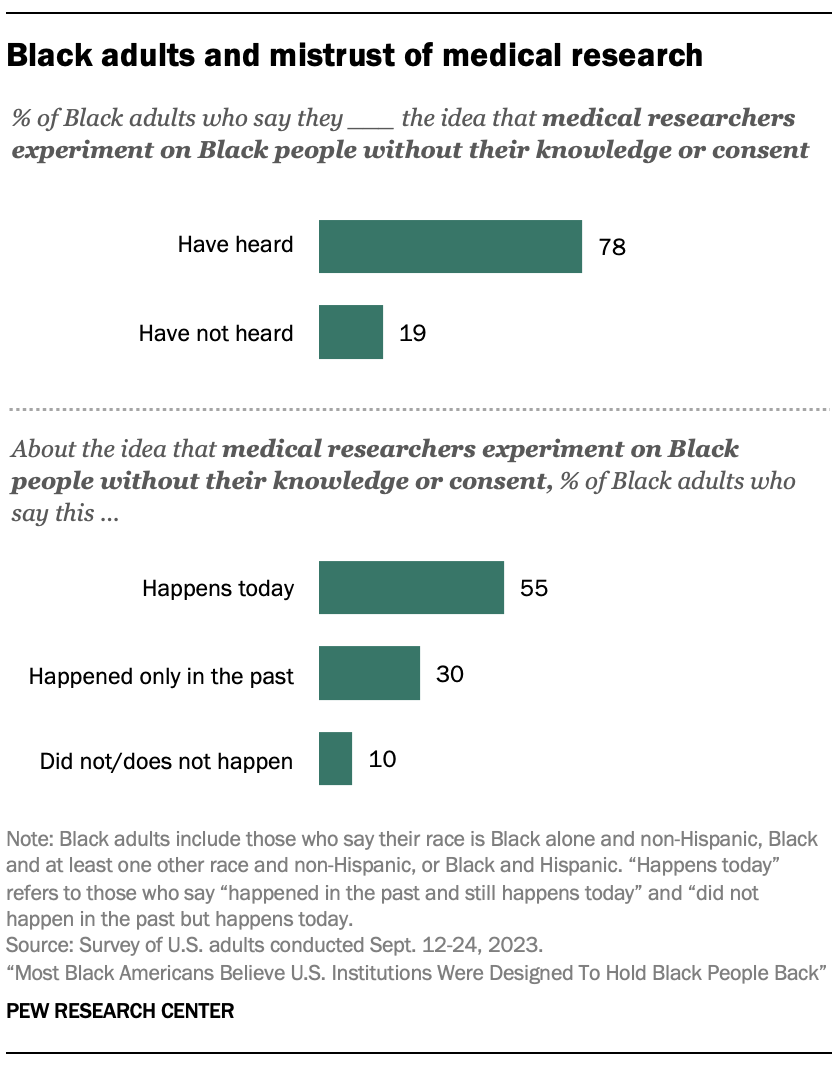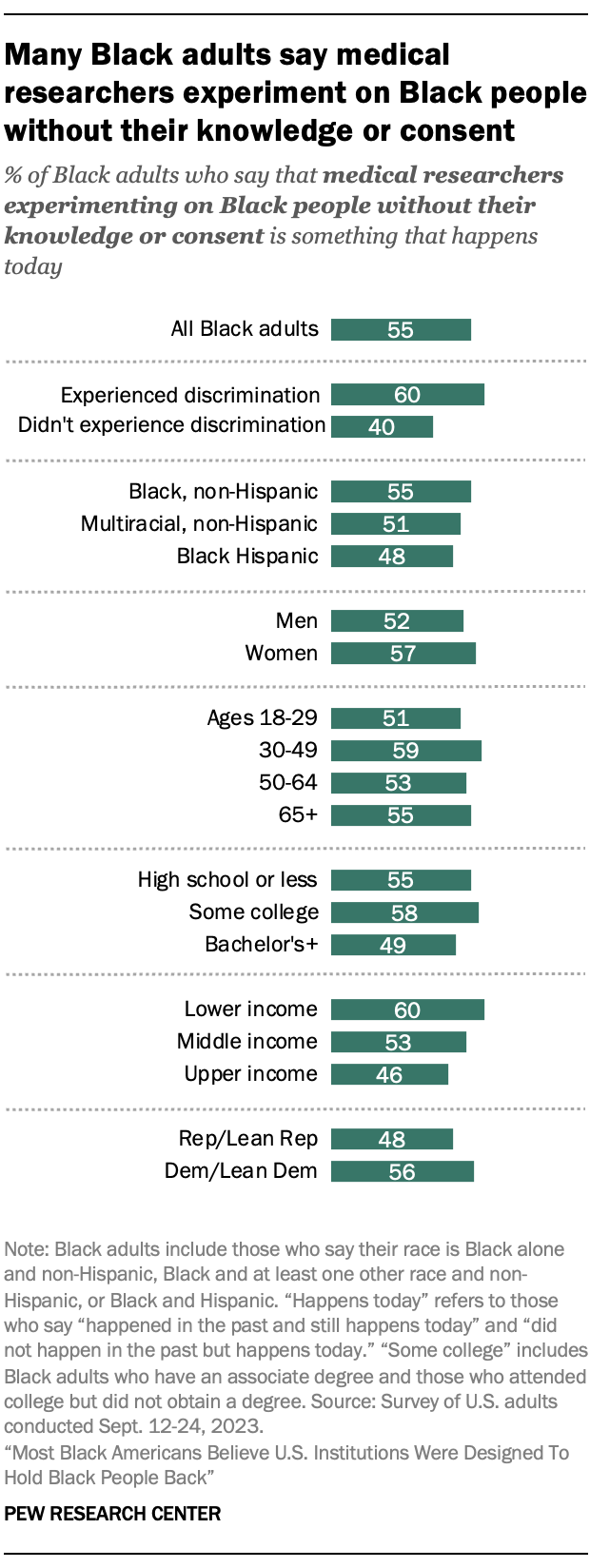Editorial note to readers
A version of this study was originally published on June 10. We previously used the term “racial conspiracy theories” as an editorial shorthand to describe a complex and mixed set of findings. By using these words, our reporting distorted rather than clarified the point of the study. Changes to this version include: an updated headline, new “explainer” paragraphs, some additional context and direct quotes from focus group participants.
Claudia Deane, Mark Hugo Lopez and Neha Sahgal contributed to the revision of this report.
Although the Tuskegee Syphilis Study is one of the best-known examples of race-based medical malpractice, there are others.
Throughout the 20th century, many Black women were subject to eugenics laws that forcibly sterilized them. In 1951, Henrietta Lacks’ cervical cells were harvested and studied without her knowledge or consent.
Today, some Black women specifically seek out Black obstetricians to avoid racial discrimination in medical care and improve their health outcomes. This history of mistrust provides the context for Black Americans’ beliefs about the health care system and medical research.
Some Black Americans believe the health care system was designed to hold them back

A 2022 Pew Research Center report found mixed results in how Black adults assessed their experiences with health care. While nearly half (47%) said health outcomes for Black people have improved over the last 20 years, sizable minorities said they have stayed the same (31%) or gotten worse (20%).
And the majority of Black Americans (55%) said they have had negative experiences with doctors, including having to speak up to get proper care and feeling like the pain they were experiencing was not taken seriously.
In the current survey, 51% of Black Americans say the U.S. health care system was designed to hold Black people back a great deal or fair amount. Another 28% say it was designed to hold Black people back some, and 19% say not too much or not at all.
Black adults differ significantly on this question by gender. Indeed, Black women (58%) are more likely than Black men (44%) to say the health care system was designed to hold Black people back. But Black women under 50 (61%) are much more likely to say this than older Black women (54%) and all men regardless of age (44%). These patterns are like those in the 2022 study, which found that Black women (particularly those under 50) were significantly more likely than Black men to report negative experiences in health care. This includes not having their women’s health concerns taken seriously.
Mistrust about medical research

While many Black adults say the U.S. health care system was designed to hold Black people back (51%), 78% say they have heard the idea that medical researchers experiment on Black people without their knowledge or consent. Only 19% say they have not heard about this at all.

When it comes to medical research, 55% of Black Americans believe nonconsensual experiments are being conducted on Black people today. Fewer say this is a thing of the past (30%) or that it never happened (10%).
Like their general belief that the U.S. health care system was designed to hold Black people back, Black women (57%) are slightly more likely than Black men (52%) to believe medical experimentation on Black people without their knowledge or consent is something that is happening today.
Black adults with some college (58%) or a high school diploma (55%) are more likely than those with a bachelor’s degree or higher (49%) to say medical experimentation on Black people without their knowledge or consent happens today.
Likewise, Black adults with lower incomes (60%) are the most likely among the income groups to agree. Black adults who live in the Midwest (60%) are more likely than those in the Northeast (52%) to say medical experimentation against Black people happens today. About half of Black adults in the South (54%) and the West (53%) say the same. Black adults in urban areas (59%) are more likely than those in the suburbs (51%) to say these types of experiments happen today, while 57% of those in rural areas agree.




